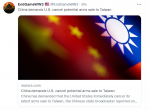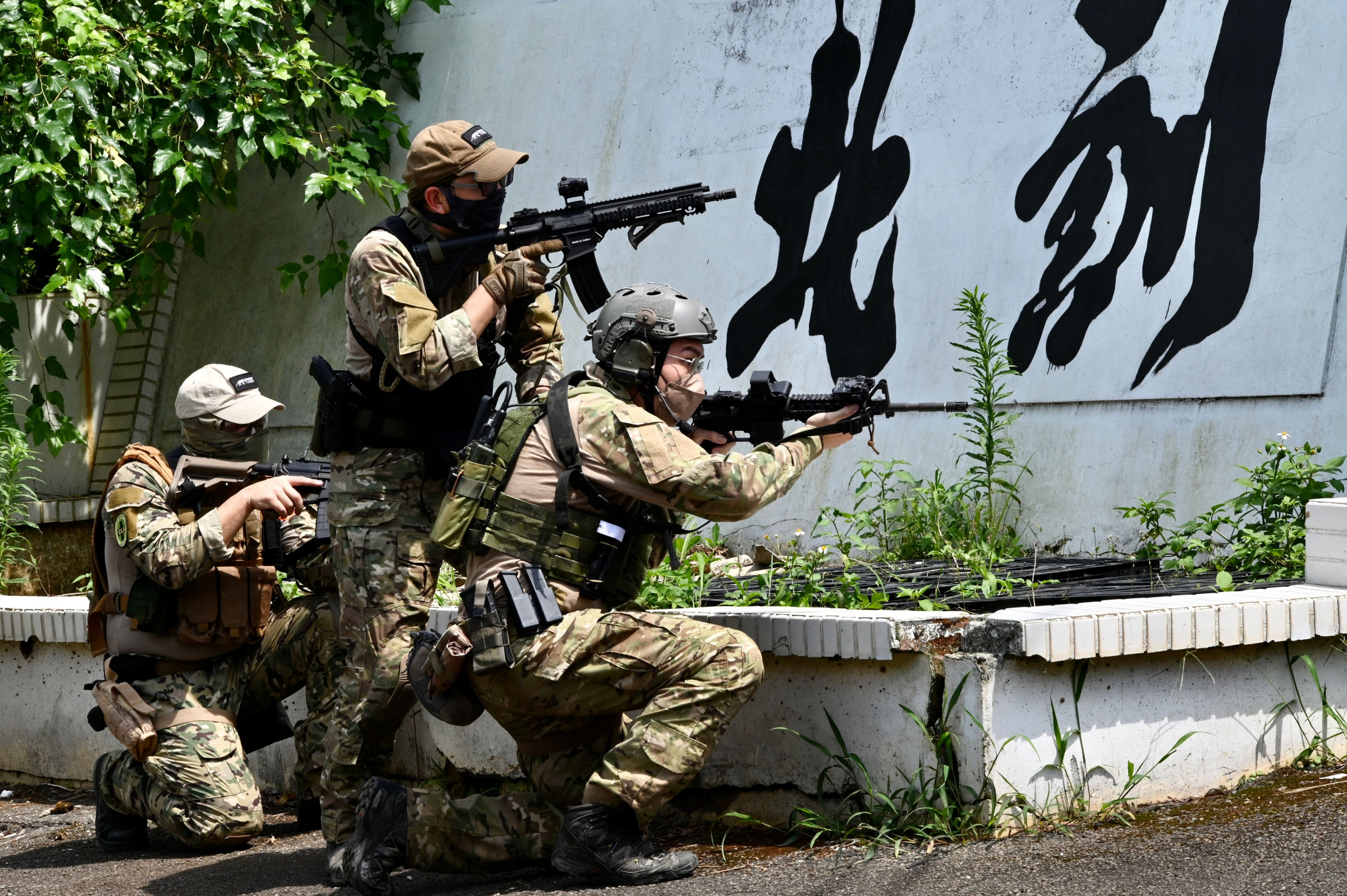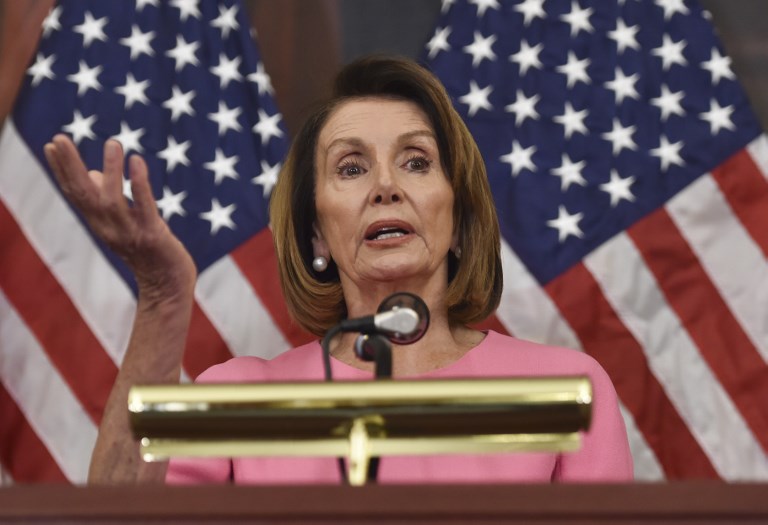Taiwan’s homemade subs may or may not deter China
Gabriel Honrada
Taiwan has announced that its first domestically-built conventional attack submarine will be launched in September 2023, the self-governing island’s latest effort to counterbalance China’s superior naval might, Taiwanese state media
reported.
The report claims that Taiwan’s new indigenous 2,000-ton submarines are eight to ten times more capable than its legacy Chien-Lung and Hai Shih-class vessels.
Asia Pacific Defense Journal
reports that Taiwan’s new submarines feature an X-form rudder as seen on Japan’s Soryu and Oyashio-class submarines and are expected to be built using Japanese submarine-building techniques in Kaohsiung. Seven more units are planned, with a total of eight projected to be launched by 2025, the report said.
However, Taiwan may take even longer to develop the doctrines, tactics, techniques and operating procedures for its domestically-built submarine fleet to be an effective fighting force.
As with the late-model Soryu and upcoming Taigei-class submarines, Taiwan’s new submarines will be equipped with domestically-made lithium-ion air-independent propulsion (AIP) systems,
notes Naval News.
Cost considerations and export controls on AIP systems produced by Western manufacturers were the determining factors in the decision to use domestically-made AIP technology.
However, some observers doubt Taiwan will be able to develop its own AIP systems so quickly. The International Institute for Strategic Studies (IISS), for one,
notes a significant gap in Taiwan’s AIP research. The report said Taiwan has sent delegations worldwide to acquire the technology, raising certain doubts about its indigenous capacities.
Meanwhile, countries with established AIP technology such as Japan, Germany, Sweden and France have until now been reluctant to sell to Taiwan due to concerns of possible diplomatic and economic retribution from China,
notes Defense News.
Early models of Taiwan’s indigenous conventional submarines may not have domestic AIP modules, while later models may. Some suggest it is possible that early models of Taiwan’s indigenous submarines could later be upgraded with domestically produced AIP modules if and when they become available.
Added to the mix, Defense Post
reports that the US has offered the AN/BYG-1 submarine combat management system it uses in its nuclear submarines. Taiwan’s new attack submarines will also feature US sonar systems,
reports Asia Military Review.
Taiwan’s indigenous submarine’s design is influenced by its older Dutch-built Chen-Lung units and will be armed with MK-48 Mod 6 Advanced heavyweight torpedoes and UGM-84L sub-launched Harpoon Block II missiles.
Strategy and operations
Since 2008, Taiwan has relied on a porcupine defense strategy, which involves large numbers of small, mobile, affordable and resilient anti-aircraft and anti-ship systems that can survive initial strikes and effectively fight off an amphibious Chinese invasion,
notes Texas National Review.
The source mentions that these systems increase the risk of an invasion attempt, resulting in failure or stalling the operation. In addition, the prospect of China incurring colossal military, economic, political, domestic and international costs may deter it from launching an invasion that could fail or have huge reputational costs, the report says.
However, this strategy is far from perfect for Taiwan. For example, open sea lanes of communication (SLOC) are vital for its survival as a self-governing island. A statement released by the Kuomintang domestic political party
notes that even with a porcupine strategy, Taiwan could be blockaded and starved to death.
At the same time, the missile systems that Taiwan relies on for its defense are passive weapons, in the sense that they can do little more than sit and wait for targets. Considering the limitations of this porcupine strategy, Taiwan may need systems that can take the fight to an invader rather than force them off the island’s shores.
As such, Taiwan’s homegrown submarines may be vital assets in keeping these SLOCs open if China decides to mount a blockade instead of an invasion,
notes defense analyst Michal Thim in the blog Taiwan in Perspective.
Thim notes that submarines are excellent asymmetrical platforms that punch well above their weight, citing the effectiveness of Argentina’s submarines during the Falklands War, wherein one Argentine submarine managed to fire three times at the British fleet and still managed to escape.
Thim also mentions that submarines can inflict losses with high shock value, citing the sinking of the cruiser ARA General Belgrano by the HMS Conqueror. This loss profoundly shocked the Argentinean Navy, keeping its only carrier, ARA Veinticinco de Mayo, at port throughout the war.
During a potential Chinese blockade, Taiwan’s indigenous submarines could help to keep the island’s eastern ports open for US resupply. Ports such as Suao and Hualien would become vital lifelines if ports on the island’s western side such as Kaohsiung and Keelung are taken out of action.
China must also contend with possibly losing a major surface combatant against Taiwan’s diminutive submarines, such as one of its prized aircraft carriers or Type 55 cruisers. As shown by the sinking of the Russian cruiser Moskva in the Black Sea, the loss of a significant combatant entails vast costs on capability, morale and national prestige.
Taiwan’s current sub fleet is antiquated. Photo: Central News Agency, Taiwan
Complicated status quo
However, Taiwan’s planned new submarines will not alone be enough to guarantee a successful defense of Taiwan. As
noted in Asia Times, a small fleet of conventional submarines is insufficient on its own to deter a Chinese invasion.
The report notes that, on average, the Taiwan Strait is just 50 meters deep, which makes submarines easily detectable and targetable with modern anti-submarine weapons. Furthermore, a sub must be a coherent system from the start while integrating different subsystems from different manufacturers can pose technical problems, resulting in possible production delays.
Another Asia Times
report surmised that a misplaced faith in Taiwan’s conventional submarines and other defensive assets can induce politicians to take even riskier courses of action – even with the strategic ambiguity between the US and Taiwan, where the US is non-committal in whether it would defend Taiwan – and make a Chinese invasion a self-fulfilling prophecy.
Still, Taiwan’s submarines are critical assets in maintaining the status quo in the Taiwan Strait, including as focal points of practical assistance and professional ties with the US and its allies.
Although utterly outmatched by China’s conventional military, Taiwan’s submarines are a critical asymmetric warfare platform that may help to even out the odds and maintain a tenuous regional peace.
Taiwan’s new submarines may be deployed to support special operations near the frontline islands of Kinmen and Matsu, threaten China’s invasion staging areas with long-range missile strikes and conduct surveillance of China’s military activities in the Taiwan Strait –assuming the boats are put into service before a conflict erupts in a new era of US-China tension and contest.
Taiwan’s homemade subs may or may not deter China


 asia.nikkei.com
asia.nikkei.com













